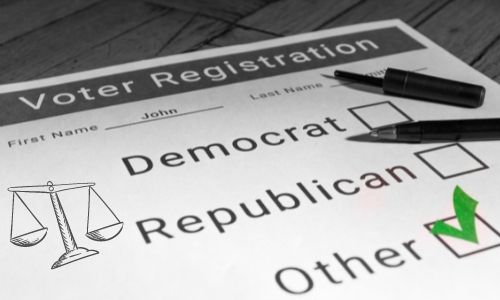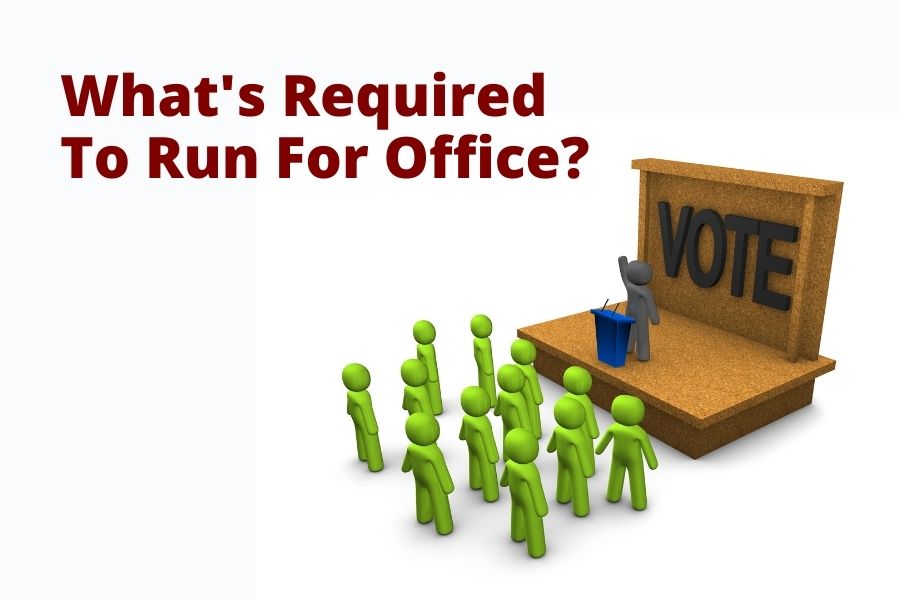Local government is the fundamental building block of our government structure. Local officials and agencies are in the best position to understand the needs of the constituents they serve, and actively work to solve their problems by improving infrastructure, education, and other key aspects of life.
Running for office is a great way to make a difference in your town, city, or county. If you are planning to run, then you need to prepare yourself by learning about the position you seek, getting your name out to the public, and learning how to build out a campaign organization.
But before you do all that, one of the first steps to run for elected office is to find out if you are qualified to be a candidate. This applies if you are running for council, mayor, sheriff, judge, state legislature, or even for a position on your local school board.
All elected positions have specific qualifications
To be eligible as a state, county or local political candidate, there are basic qualifications you’ll need to meet. These requirements are determined by the laws and regulations of your state and district.
There are three basic requirements to hold political office in the United States:
- You need to be a citizen.
- Be least 18 years old.
- Live in the district you want to represent.
These conditions will apply no matter your political party or even if you are a write-in candidate. In some states, you must be a resident of the district for at least one year or two years before the election.

Even local elections cost money. There’s no getting around that.
Local offices are generally the most affordable of all political offices. It is not uncommon for someone to run for local office with hardly any money at all. However, most candidates must raise funds to pay for their campaigns.
The cost of running a political campaign depends on the position sought, the number of people running for office, and how many votes are needed to win. A local election can usually cost anywhere from a few hundred dollars to a $1 million or more.
The 2021 Boston mayoral race was one of the most expensive races in American history, with candidates spending over $5 million combined. It’s a city, but still a local race.
Local races typically raise and spend far less than campaigns for a state or national office. Regardless, it is necessary to put together a budget and a strategy to raise money. Even if you don’t think you’ll need to spend too much, your opponent may be preparing otherwise…
Free Campaigning Tips: Subscribe for free guides and updates from Online Candidate.
You need time to prepare for your campaign
The process of political campaigning is not easy. Running for local office is not as difficult as running for a national office. The run time of the campaign varies depending on the type of position you are aiming to win, but it can be anywhere from one to two years.
You need enough time to prepare yourself, your family and to get the word out about your intentions.
Some years ago, we had a candidate run for village council. It was a small, local race that only lasted a month or two. A week before the election, the candidate was asked by a newspaper about where he stood on a major local issue. He said he ‘didn’t want to tip his hat’ too early. Because he waited so long to ramp up his candidacy, he never got the chance.
And he didn’t win the election.
Registering to run as a political candidate
Registering a campaign committee is the first official step to gaining access to the ballot for a primary or general election. This can be done through your local board of elections office.
Each office has different guidelines. Whether you are an experienced politician or just getting started, you and your team will need to follow any compliance rules. Contact your local board of elections for more information on how to get on the ballot.
A bank account and financial structure must be established
Almost every campaign is going to require money to be spent on advertising, staff, and other expenses. The first step to running for office is to have a dedicated campaign bank account. This account will allow you to take in money through donations and spend money during the election season.
You’ll need to put together a campaign team
Election campaigns need a diverse range of staff to be successful. They need people to arrange events, make phone calls, knock on doors, and raise money. Individual roles in include a treasurer, volunteer coordinator, communication director and various consultants.
Some positions on the team are more important than others. For example, a campaign manager is usually the most important person in charge of the campaign. They must make sure that everything is done on time and to plan.
The lack of a campaign manager can be a recipe for disaster. A well-run campaign needs a combination of organization, strategy, and execution. Without the right person in charge, even well-spoken candidates might find themselves in trouble.
Tip: In almost no circumstance should a political candidate act as their own campaign manager.
Start the campaigning process
Be informed and know your positions on the issues that are happening in your district. You should also know your district boundaries, and familiarize yourself with voting districts. There are many different viewpoints and opinions, so it is important to be aware of all sides as you develop your election platform.
Other questions
Are there legal or criminal background restrictions for running for public office?
Legal or criminal background restrictions vary by jurisdiction. Some areas disqualify candidates with felony convictions, while other may have less stringent criteria. You’ll need to check your local election laws for specific restrictions or details.
How does the political party system influence the process?
Navigating the political party system involves understanding local party dynamics. Candidates should research their party’s stance on issues. They might also consider the benefits of running as an independent. This choice depends on the local political landscape.
What are the common pitfalls or mistakes first-time candidates make?
First-time candidates often enter a race with a lack of planning and poor organization, often consisting of the just the candidate and maybe a few other volunteers. To avoid these common pitfalls, candidates should start preparing early and get a reliable team together as soon as they can.
If you are running for county or local government, there are certain prerequisites you will need to meet. Learning what you need to know head of time will you save time and effort as you prepare to start your campaign.
Getting ready to run? Start your campaign with Online Candidate. We provide campaign website packages and marketing services for candidates.
« Pros and Cons of Running a Slate of Candidates OnlinePolitical Campaign Fundraising FAQ: How to Raise Money for Your Campaign Online »
Tags: election law







